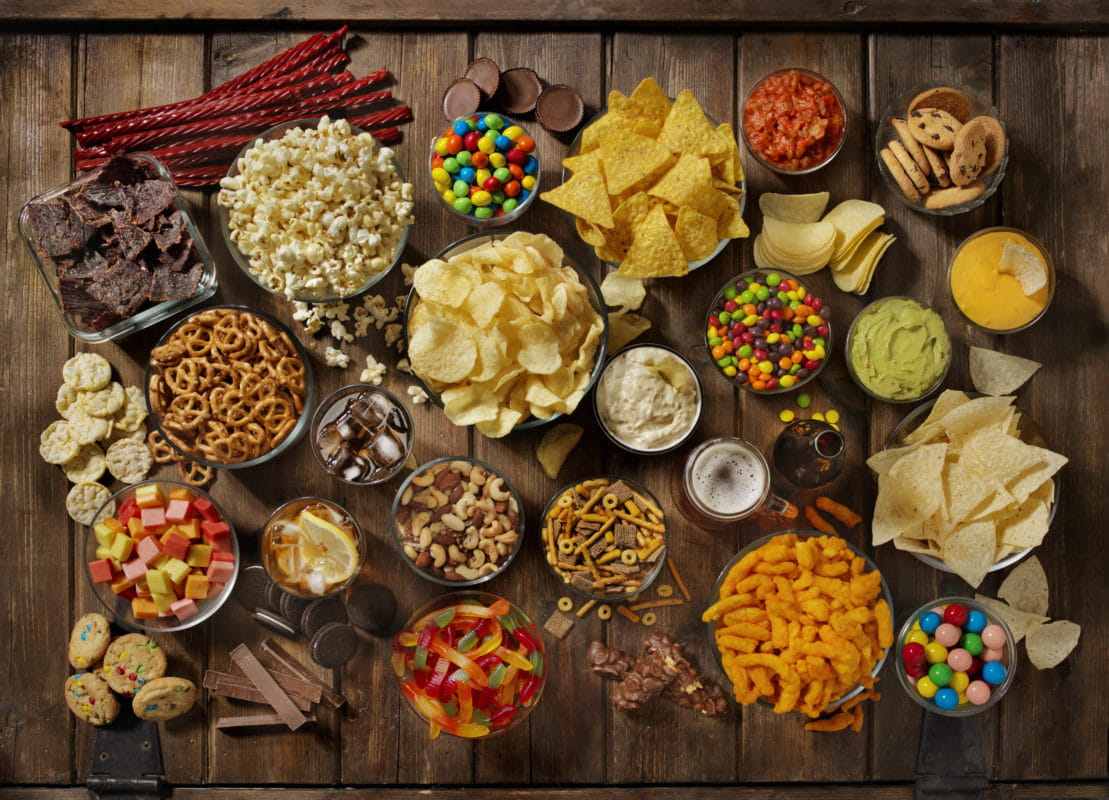Trend Insight: Indulgence
December 19, 2019
Click Here for the full report!
No longer is indulgence one-size-fits all. In the changing food and beverage landscape, consumers’ perspective as it relates to indulgence has changed as well. For one, a wellness focus is infused in all purchases – even for the least “health-minded” shopper among us. But that wellness focus is holistic view, with mental health, relaxation, mood and self care rising in importance nearly equal to calorie counting. That chocolate milkshake once viewed as a guilty pleasure, is now a form of self-care, especially if it’s made with chickpeas or fortified with extra protein. From alcohol-inspired flavors (without the alcohol); unique texture innovations; permissible indulgence and next level sweet-and-salty, let’s look at the opportunity for you in indulgence.
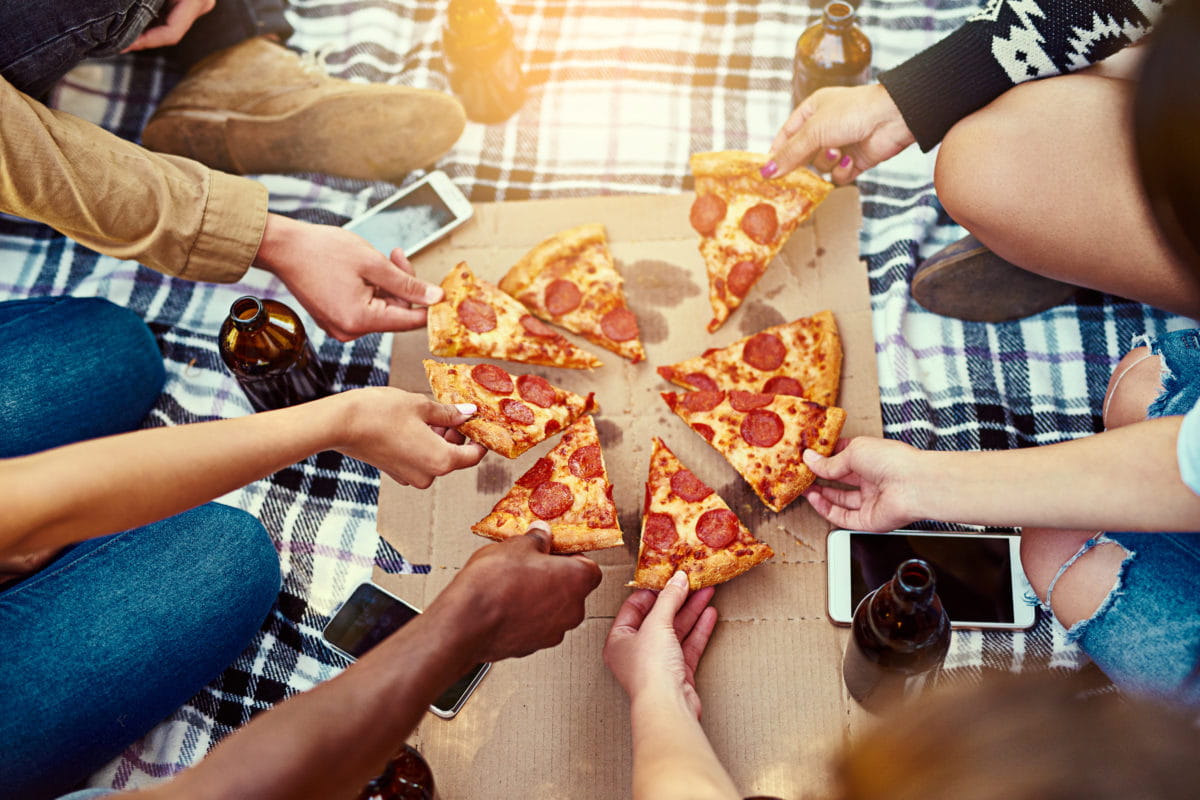
Each generation of consumers likely to indulge a bit differently to meet their unique needs. Adventurous Gen-Zers might want to try Turkish-spiced truffles, whereas health conscious Baby Boomers may gravitate towards a low-calorie mousse. Opportunities to create eye-catching treats for each generation lie in understanding their preferences, concerns, and indulgence motivations.
GEN Z: More than any other generation, Gen-Z is globally connected via Instagram, TikTok, Snapchat, and more. This connectedness gives Gen-Z a window into flavors around the world, and their interest in ethnic and international flavors is sky high. This generation is also concerned with mental health. They look for treats with mood-boosting qualities that bring happiness, relaxation, or focus.
MILLENIALS: The generation that spurred the clean movement approaches indulgence with a similar mindset, looking for treats that provide a health or societal benefit that they can feel good about eating, like plant-based cookies or sustainably sourced chocolate. Similar to Gen-Z, Millennials are interested in global and international flavors, as well as premium products that use real food ingredients, homemade recipes, or regional techniques.
GEN X: Not quite as adventurous as Gen-Z or Millennials, Gen X is one of the most nostalgic generations. Because of this, they may not be as interested in trying wacky textures or adventurous flavors. The use of an “anchor” flavor or texture in could nudge this generation out of their comfort zone to try something new in their next indulgent treat.
BABY BOOMERS: After the age of 50 the taste buds become duller year after year, so indulging Baby Boomers may look for bolder, stronger flavors, while also keeping in mind specific health concerns like sugar and calorie reduction, bone health, or digestive benefits.
No matter the generation, healthy mindfulness permeates indulgence more than ever before. Consumers care about what they put in their bodies, even when they indulge. We can call it “permissible indulgence” or healthy indulgence. (Mondelez calls this “conscious indulgence” in their State of Snacking report.) Sometimes consumers want to balance health with unapologetic decadence and sometimes they want to meet in the middle with better-for-you ingredients.

It’s the age of the smart phone and nearly everything can be researched, planned, or compared. Consumers are busy, and planning keeps them productive, even when it comes to indulging.
Euromonitor found that only 23% of consumers often make impulse buying decisions, down from 28% in 2013. Evidence shows shoppers still give in to cravings, they just plan it out a bit more than they once did. In fact, Mintel found that 25% of consumers purposefully ate more healthy during week because they planned to indulge on the weekends. Providing products that target specific times of day or specific cravings may resonate well with consumers’ desire to indulge if —and when— they want to.
Not only is indulgence becoming more planned, it’s purposeful. For many consumers, indulging is a means to achieve a particular mood or desired mental state. Feel-good treats come in all shapes in sizes, and whether it’s a chocolate brownie that uses ethically sourced cocoa beans or a CBD snickerdoodle, consumers want to feel good about treating themselves—socially, emotionally, and mentally.
One-size-does-not-fit-all when it comes to health and wellness, and indulging is no different. About 80% of consumers agree that eating healthy is all about balance, not restrictions, and 83% of people agree a balanced diet can include a little indulgence. A study done by IRI showed that when asked “Which of the following best describes your attitude toward eating?,” 38% of respondents chose “I eat healthy about half the time, and eat whatever I want the other half of the time,” up 2% from 2018. Consumers are all about balance and want permission to treat themselves to an optimal experience with reduced harm.
Mintel named “permissible indulgence” one of their 2019 Innovation Trends, and we believe this attitude will continue on in 2020 and beyond. Think plant-based ice cream, cauliflower crust pizza, mushroom and meat blended burgers, and collagen laced lattes. Where there used to be cognitive dissonance with consumers, now there can be guilt-free enjoyment.
38% of respondents chose “I eat healthy about half the time, and eat whatever I want the other half of the time,” up 2% from 2018. (source: IRI)
So what makes products permissible when it comes to indulging?
Consumers want to indulge but are also concerned with the amount of sugar, fat, and calories they eat. These health-conscious consumers may look for “mini”, “bite sized”, and “thins” when looking for a guilt-free treat. Products that fit this description are Oreo Thins, Cheez-Its Snapped, Dunkin’ Coffee Thins, and new Häagen-Dazs single-serving gelato cups with the tagline “Real Indulgence, Just Lighter.”
Protein claims still pack a punch with consumers, even in indulgent products. Euromonitor’s Health and Nutrition Survey reported that 8% of consumers are following high-protein diets, and Mintel found 27% of cookie consumers claim high protein makes a cookie healthier. Adding protein to indulgent products could give them a healthy halo; but it’s a balance. Too much protein and the product is viewed as purely functional—no longer a treat or an escape.
Although 60% of consumers are reducing the amount of sugar they consume, we found that 73% of consumers say taste is more important than grams of sugar per serving. So, although consumers want to reduce their sugar intake, they are more interested in a product’s overall taste than they are about the sugar content. Meeting consumer’s desires for reduced sugar without compromising taste is a premier indulgence innovation opportunity.
Haagen-Dazs Single-Serve Gelato Cups: feature four mini cups at 150 calories each. The brand uses the tagline “Real Indulgence, Just Lighter.” associated with the portioned gelato cups.
Annie's Homegrown Peanut Butter Cookie Dough Protein Bar: has 10g or less of sugar, 8g of protein and is said to be an indulgent snack with a great taste.
Hailmerry Sweet Potato Butter Cups: feature label-friendly ingredients like coconut oil and sweet potato, and only contain 3.5g sugar per cup.
Consumers are incredibly aware of their mental and emotional health and see indulging as a healthy and necessary part of staying balanced, happy, and productive. Whether it’s stress relief, comfort, joy, or focus, consumers view indulgence as self-care and decide with their heads—not just their stomachs. In fact, 80% of Americans say they have a regimen around self-care, and treats play a role in that process.
One obvious and fast-growing market for mood enhancing indulgence is the CBD and cannabis market. The market is growing—the global market for legal cannabis is projected to be $166B by 2025, growing 40% annually. And consumers are curious— 85% of our own dedicated shopper panel are interested in consuming products containing CBD for health benefits, and 55% are interested in consuming THC-infused products for health benefits. Ultimately, these products meet consumers’ desire to achieve a particular mood or state of mind.
One example of self-care blurring with indulgence is cannabis company Serra, in Portland, OR, that has organized their website by feeling: energy, focus, happiness, creativity, relaxation, and relief.
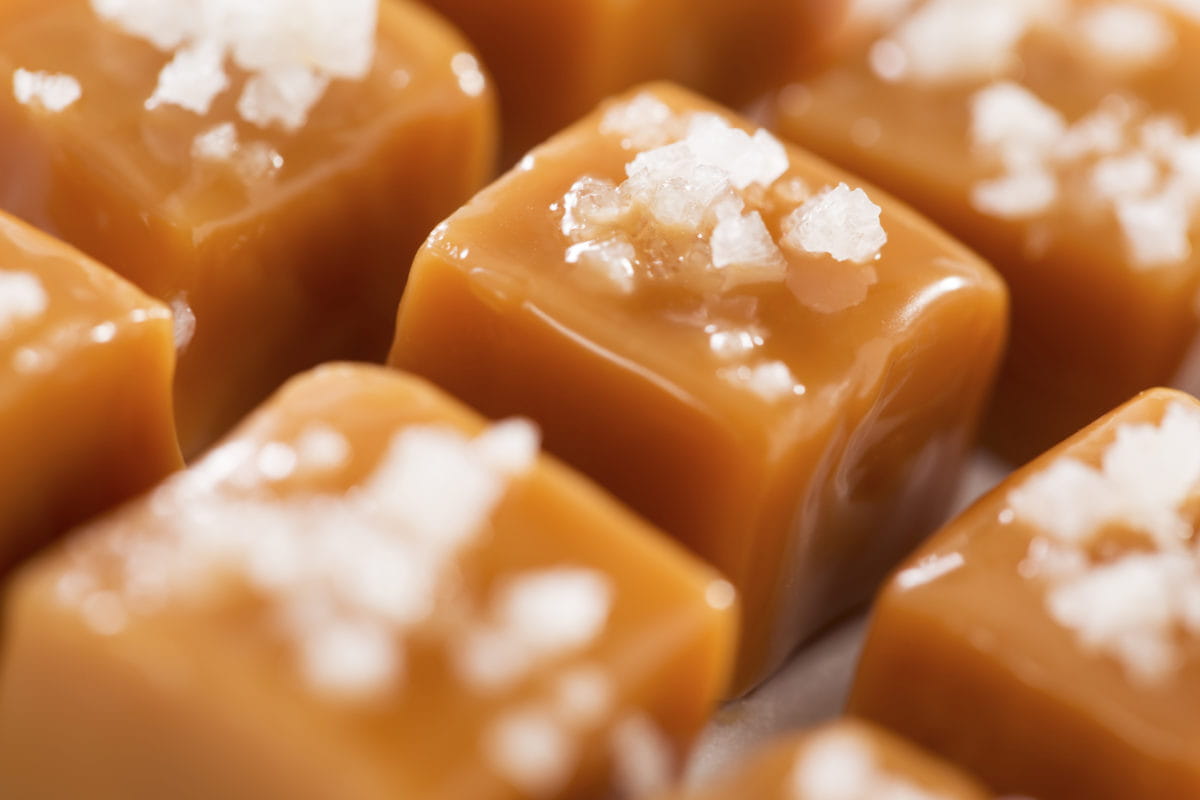
The top flavors in indulgent products show that classic indulgence continues to win the day. Globally, salted caramel is showing enormous growth since 2017, followed by coconut and cheesecake. Meanwhile, in North America – it’s chocolate, caramel and vanilla that strike sweet tooths across the continent. In terms of growth, strawberry and lemon are two noteworthy tastes growing in indulgent products.
Global:
North America
Global
North America
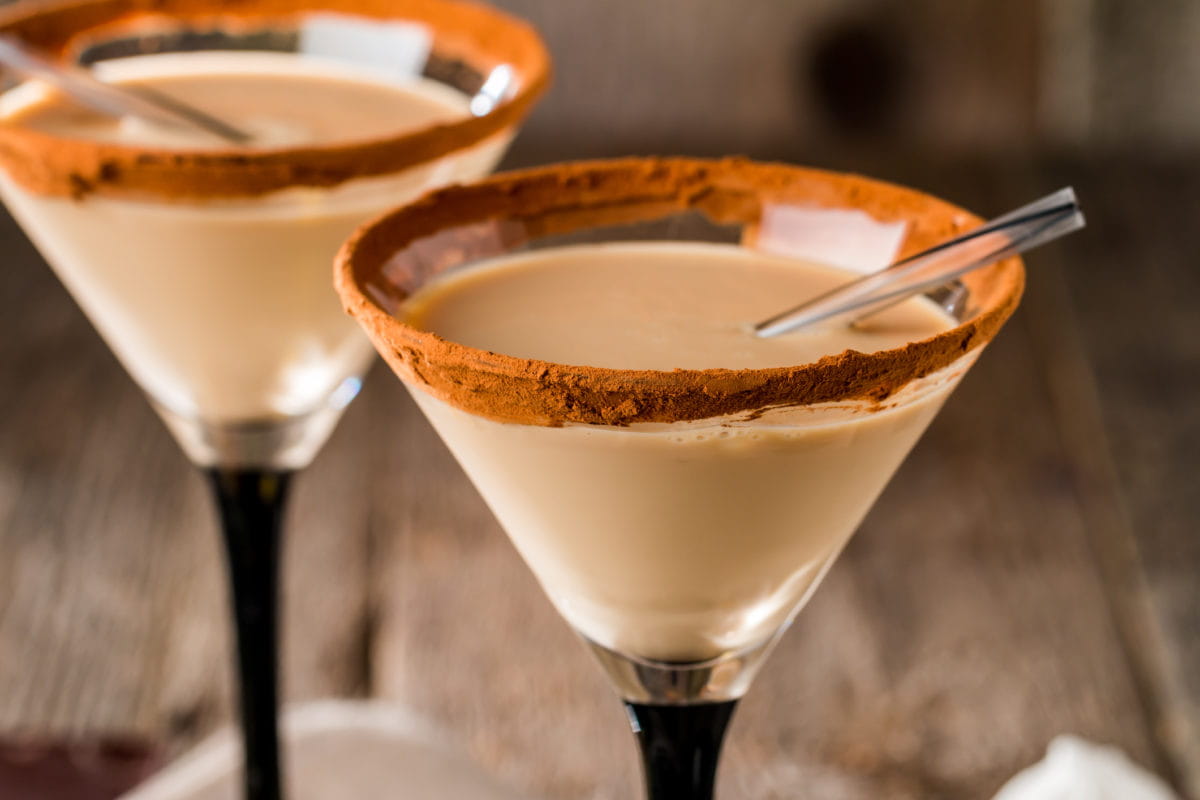
As health-conscious consumers become more aware of the way they indulge, the consumption of alcoholic beverages has seen some decline over the past few years. In fact, we found that 53% of young Millennials prefer drinking lower or non-alcoholic drinks over standard strength. Research shows that Gen Z has less of an interest in alcohol than any generation before them.
Perhaps incongruently, interest of “boozy flavors” appears to be stronger than ever. Our research shows that products featuring alcohol flavors received a consumer perception rating that was 13.5% higher in the attribute “unique,” and 8.3% higher for “premium.” Food and beverage companies have still been meeting consumer’s desire for boozy flavors — sans booze.
Launch of Note:
Capitalizing on the interest of boozy flavors (without the alcohol of course), Starbucks released its Irish Cream Cold Brew in December 2019. The drink is made with cold brew coffee and Irish cream flavored syrup. It’s then topped with vanilla sweet cream cold foam and cocoa powder. While traditional Irish cream includes whiskey, Starbucks’ new drink is alcohol-free.
Salted caramel has permeated indulgence for years, and it’s not leaving anytime soon. How can you capitalize on the indulgence of sweet-and-salty but stand out from the crowd? Consider including other salty players in the mix like salted chocolate, vanilla, or peanut butter. Caramel comes in many shapes and sizes, so swap caramel swirls for caramel chips, a caramel shell, or even caramel powder. Finally, consumer’s desire
for authenticity can be translated by using hyper-specific, regional flavors like Himalayan, volcanic, and Mediterranean sea salt, or browned, stout, or smoked caramel.
Nestle Coffee-Mate Artisan Cafe Himalayan Salted Caramel Flavored Creamer: Comprises single origin Himalayan pink salt blended with natural caramel flavor, real cream, buttermilk and milk, and is said to add an indulgent fusion of salty and sweetness.
Kellogg's Pretzel Pop Tarts: Launching January 2020, feature a salty and crispy pretzel crust and will come in two different flavors: Chocolate and Cinnamon Sugar.
Salty & Sweet Chocolate Snickers Bar: Last summer, snickers released this bar, playfully trying to satiate consumers’ torn with the decision to choose something salty or sweet.
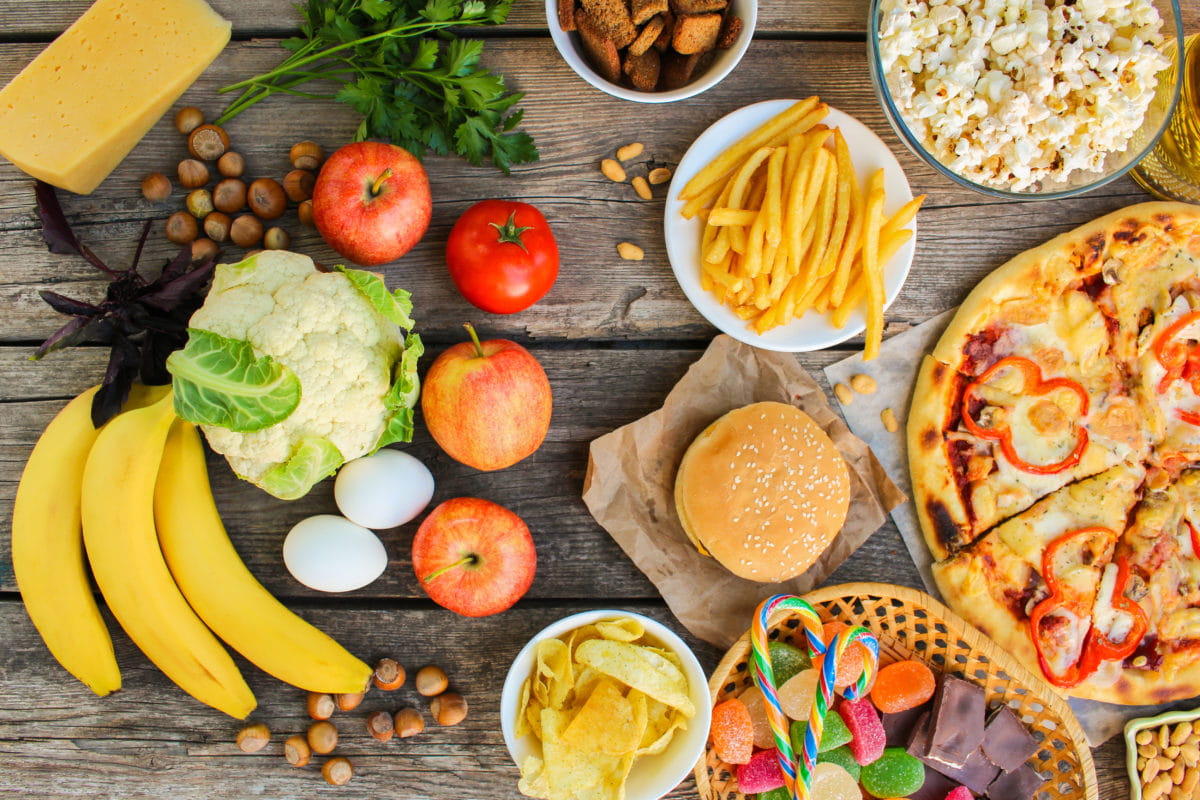
Millennials and Generation Z in particular seek out new and different experiences when they indulge. More than just seeking that which is “Insta-worthy” – it’s the search for something to savor. New and exciting textures could tap into that. According to Innova Market Insights, 70% of consumers say that texture gives food a more interesting experience. Whether it’s fudgy, bubbly, or layered, we’ve spotted products indulging consumers' senses.
Häagen-Dazs Trio Crispy Layers Lemon & Raspberry Ice Cream with White Chocolate & Raspberry Sauce: features tart lemon ice cream topped with sweet raspberry sauce that is repeatedly layered with raspberry ice cream and sheets of crispy white chocolate for a unique indulgence.
Hands Off My Chocolate Strawberry Meringue White Chocolate: features strawberry pieces, creamy white chocolate, and light and airy meringue.
With Millennials and Gen-Z transitioning into the largest buying power or consumers, their adventurous palates give opportunity for more global-inspired flavors for indulgent treats.
The ever-conscious consumer is all at once concerned with both their physical and mental wellbeing and open to indulgence that offers a unique experience. Cravings have a conscience, and when consumers indulge they do so mindfully, often with a purpose. Of course, taste is king when it comes to indulgence. It doesn’t matter how much protein or benefits a product has: if it doesn’t taste good, it’s not a treat worth savoring. New opportunities lie in maximizing on the success of the past like salted caramel innovating with new flavors (such as those that are alcohol-inspired) and interesting textures.
Click here for the full report!
What does true partnership look like? You deserve a flavor partner ready to turn these trends into the tangible.
Let FONA’s market insight and research experts get to work for you. Translate these trends into bold new ideas for your brand. Increase market share and get to your “what’s next.” Our technical flavor and product development experts are also at your service to help meet the labeling and flavor profile needs for your products to capitalize on this consumer trend. Let’s mesh the complexities of flavor with your brand development, technical requirements and regulatory needs to deliver a complete taste solution.
From concept to manufacturing, we’re here for you — every step of the way. Contact our sales service department at 630.578.8600 to request a flavor sample or chat us up at /contact-fona/
Sources in full report
No longer is indulgence one-size-fits all. In the changing food and beverage landscape, consumers’ perspective as it relates to indulgence has changed as well. For one, a wellness focus is infused in all purchases – even for the least “health-minded” shopper among us. But that wellness focus is holistic view, with mental health, relaxation, mood and self care rising in importance nearly equal to calorie counting. That chocolate milkshake once viewed as a guilty pleasure, is now a form of self-care, especially if it’s made with chickpeas or fortified with extra protein. From alcohol-inspired flavors (without the alcohol); unique texture innovations; permissible indulgence and next level sweet-and-salty, let’s look at the opportunity for you in indulgence.

Indulgence Across the Generations
Each generation of consumers likely to indulge a bit differently to meet their unique needs. Adventurous Gen-Zers might want to try Turkish-spiced truffles, whereas health conscious Baby Boomers may gravitate towards a low-calorie mousse. Opportunities to create eye-catching treats for each generation lie in understanding their preferences, concerns, and indulgence motivations.
GEN Z: More than any other generation, Gen-Z is globally connected via Instagram, TikTok, Snapchat, and more. This connectedness gives Gen-Z a window into flavors around the world, and their interest in ethnic and international flavors is sky high. This generation is also concerned with mental health. They look for treats with mood-boosting qualities that bring happiness, relaxation, or focus.
MILLENIALS: The generation that spurred the clean movement approaches indulgence with a similar mindset, looking for treats that provide a health or societal benefit that they can feel good about eating, like plant-based cookies or sustainably sourced chocolate. Similar to Gen-Z, Millennials are interested in global and international flavors, as well as premium products that use real food ingredients, homemade recipes, or regional techniques.
GEN X: Not quite as adventurous as Gen-Z or Millennials, Gen X is one of the most nostalgic generations. Because of this, they may not be as interested in trying wacky textures or adventurous flavors. The use of an “anchor” flavor or texture in could nudge this generation out of their comfort zone to try something new in their next indulgent treat.
BABY BOOMERS: After the age of 50 the taste buds become duller year after year, so indulging Baby Boomers may look for bolder, stronger flavors, while also keeping in mind specific health concerns like sugar and calorie reduction, bone health, or digestive benefits.
Cross-Generational Conscious
No matter the generation, healthy mindfulness permeates indulgence more than ever before. Consumers care about what they put in their bodies, even when they indulge. We can call it “permissible indulgence” or healthy indulgence. (Mondelez calls this “conscious indulgence” in their State of Snacking report.) Sometimes consumers want to balance health with unapologetic decadence and sometimes they want to meet in the middle with better-for-you ingredients.

Indulgence... On My Time
25% of consumers purposefully ate more healthy during week because they planned to indulge on the weekends. -MINTEL
It’s the age of the smart phone and nearly everything can be researched, planned, or compared. Consumers are busy, and planning keeps them productive, even when it comes to indulging.
Euromonitor found that only 23% of consumers often make impulse buying decisions, down from 28% in 2013. Evidence shows shoppers still give in to cravings, they just plan it out a bit more than they once did. In fact, Mintel found that 25% of consumers purposefully ate more healthy during week because they planned to indulge on the weekends. Providing products that target specific times of day or specific cravings may resonate well with consumers’ desire to indulge if —and when— they want to.
Not only is indulgence becoming more planned, it’s purposeful. For many consumers, indulging is a means to achieve a particular mood or desired mental state. Feel-good treats come in all shapes in sizes, and whether it’s a chocolate brownie that uses ethically sourced cocoa beans or a CBD snickerdoodle, consumers want to feel good about treating themselves—socially, emotionally, and mentally.
I Walk the Line: Permissible Indulgence
One-size-does-not-fit-all when it comes to health and wellness, and indulging is no different. About 80% of consumers agree that eating healthy is all about balance, not restrictions, and 83% of people agree a balanced diet can include a little indulgence. A study done by IRI showed that when asked “Which of the following best describes your attitude toward eating?,” 38% of respondents chose “I eat healthy about half the time, and eat whatever I want the other half of the time,” up 2% from 2018. Consumers are all about balance and want permission to treat themselves to an optimal experience with reduced harm.
Mintel named “permissible indulgence” one of their 2019 Innovation Trends, and we believe this attitude will continue on in 2020 and beyond. Think plant-based ice cream, cauliflower crust pizza, mushroom and meat blended burgers, and collagen laced lattes. Where there used to be cognitive dissonance with consumers, now there can be guilt-free enjoyment.
38% of respondents chose “I eat healthy about half the time, and eat whatever I want the other half of the time,” up 2% from 2018. (source: IRI)
Putting the Permissible in "Permissible Indulgence"
So what makes products permissible when it comes to indulging?
Mindful Portions
Consumers want to indulge but are also concerned with the amount of sugar, fat, and calories they eat. These health-conscious consumers may look for “mini”, “bite sized”, and “thins” when looking for a guilt-free treat. Products that fit this description are Oreo Thins, Cheez-Its Snapped, Dunkin’ Coffee Thins, and new Häagen-Dazs single-serving gelato cups with the tagline “Real Indulgence, Just Lighter.”
Added Protein
Protein claims still pack a punch with consumers, even in indulgent products. Euromonitor’s Health and Nutrition Survey reported that 8% of consumers are following high-protein diets, and Mintel found 27% of cookie consumers claim high protein makes a cookie healthier. Adding protein to indulgent products could give them a healthy halo; but it’s a balance. Too much protein and the product is viewed as purely functional—no longer a treat or an escape.
Reduced Sugar
Although 60% of consumers are reducing the amount of sugar they consume, we found that 73% of consumers say taste is more important than grams of sugar per serving. So, although consumers want to reduce their sugar intake, they are more interested in a product’s overall taste than they are about the sugar content. Meeting consumer’s desires for reduced sugar without compromising taste is a premier indulgence innovation opportunity.
Products of Note:
Haagen-Dazs Single-Serve Gelato Cups: feature four mini cups at 150 calories each. The brand uses the tagline “Real Indulgence, Just Lighter.” associated with the portioned gelato cups.
Annie's Homegrown Peanut Butter Cookie Dough Protein Bar: has 10g or less of sugar, 8g of protein and is said to be an indulgent snack with a great taste.
- Shopper Sentiment 38% of consumers polled said they likely or definitely would buy this product
Hailmerry Sweet Potato Butter Cups: feature label-friendly ingredients like coconut oil and sweet potato, and only contain 3.5g sugar per cup.
- Shopper Sentiment: 39% of consumers responded that they likely or definitely would buy this product
Self-Care and Mood Boosting
Consumers are incredibly aware of their mental and emotional health and see indulging as a healthy and necessary part of staying balanced, happy, and productive. Whether it’s stress relief, comfort, joy, or focus, consumers view indulgence as self-care and decide with their heads—not just their stomachs. In fact, 80% of Americans say they have a regimen around self-care, and treats play a role in that process.
One obvious and fast-growing market for mood enhancing indulgence is the CBD and cannabis market. The market is growing—the global market for legal cannabis is projected to be $166B by 2025, growing 40% annually. And consumers are curious— 85% of our own dedicated shopper panel are interested in consuming products containing CBD for health benefits, and 55% are interested in consuming THC-infused products for health benefits. Ultimately, these products meet consumers’ desire to achieve a particular mood or state of mind.
One example of self-care blurring with indulgence is cannabis company Serra, in Portland, OR, that has organized their website by feeling: energy, focus, happiness, creativity, relaxation, and relief.

Flavor Trends & Opportunities
Indulgent Flavors by the Numbers:
The top flavors in indulgent products show that classic indulgence continues to win the day. Globally, salted caramel is showing enormous growth since 2017, followed by coconut and cheesecake. Meanwhile, in North America – it’s chocolate, caramel and vanilla that strike sweet tooths across the continent. In terms of growth, strawberry and lemon are two noteworthy tastes growing in indulgent products.
Top Flavors in Indulgent Products: Nov 2016-Nov 2019
Global:
- Chocolate
- Vanilla
- Caramel/Caramelized
- Salted Caramel
- Hazelnut
North America
- Chocolate
- Caramel
- Salted Caramel
- Cocoa/Cacao
- Vanilla
Top Growing Flavors in Indulgent Products: Q4 2017-Q4 2019
Global
- Salted Caramel +600%
- Coconut +300%
- Cheesecake +200%
- Dark Chocolate +150%
North America
- Chocolate +75%
- Peanut Butter +50%
- Strawberry +50%
- Lemon +50%

Alcohol-Inspired Flavors
As health-conscious consumers become more aware of the way they indulge, the consumption of alcoholic beverages has seen some decline over the past few years. In fact, we found that 53% of young Millennials prefer drinking lower or non-alcoholic drinks over standard strength. Research shows that Gen Z has less of an interest in alcohol than any generation before them.
Perhaps incongruently, interest of “boozy flavors” appears to be stronger than ever. Our research shows that products featuring alcohol flavors received a consumer perception rating that was 13.5% higher in the attribute “unique,” and 8.3% higher for “premium.” Food and beverage companies have still been meeting consumer’s desire for boozy flavors — sans booze.
Launch of Note:
Capitalizing on the interest of boozy flavors (without the alcohol of course), Starbucks released its Irish Cream Cold Brew in December 2019. The drink is made with cold brew coffee and Irish cream flavored syrup. It’s then topped with vanilla sweet cream cold foam and cocoa powder. While traditional Irish cream includes whiskey, Starbucks’ new drink is alcohol-free.
Why pick? Sweet & Salty Continues to Shine
Salted caramel has permeated indulgence for years, and it’s not leaving anytime soon. How can you capitalize on the indulgence of sweet-and-salty but stand out from the crowd? Consider including other salty players in the mix like salted chocolate, vanilla, or peanut butter. Caramel comes in many shapes and sizes, so swap caramel swirls for caramel chips, a caramel shell, or even caramel powder. Finally, consumer’s desire
for authenticity can be translated by using hyper-specific, regional flavors like Himalayan, volcanic, and Mediterranean sea salt, or browned, stout, or smoked caramel.
Products of Note:
Nestle Coffee-Mate Artisan Cafe Himalayan Salted Caramel Flavored Creamer: Comprises single origin Himalayan pink salt blended with natural caramel flavor, real cream, buttermilk and milk, and is said to add an indulgent fusion of salty and sweetness.
- Shopper Sentiment: 38% of consumers responded that they likely or definitely would buy this product
Kellogg's Pretzel Pop Tarts: Launching January 2020, feature a salty and crispy pretzel crust and will come in two different flavors: Chocolate and Cinnamon Sugar.
Salty & Sweet Chocolate Snickers Bar: Last summer, snickers released this bar, playfully trying to satiate consumers’ torn with the decision to choose something salty or sweet.
- 57% of consumers asked said they likely or definitely would buy this product

It's All About the Experience
Millennials and Generation Z in particular seek out new and different experiences when they indulge. More than just seeking that which is “Insta-worthy” – it’s the search for something to savor. New and exciting textures could tap into that. According to Innova Market Insights, 70% of consumers say that texture gives food a more interesting experience. Whether it’s fudgy, bubbly, or layered, we’ve spotted products indulging consumers' senses.
Products of Note:
Häagen-Dazs Trio Crispy Layers Lemon & Raspberry Ice Cream with White Chocolate & Raspberry Sauce: features tart lemon ice cream topped with sweet raspberry sauce that is repeatedly layered with raspberry ice cream and sheets of crispy white chocolate for a unique indulgence.
- Shopper Sentiment: 59% of consumers responded that they likely or definitely would buy this product
Meringue is another texture we’ve spotted that could be an opportunity for growth indulgence.
Hands Off My Chocolate Strawberry Meringue White Chocolate: features strawberry pieces, creamy white chocolate, and light and airy meringue.
- Shopper Sentiment: 39% of consumers responded that they likely or definitely would buy this product.
Four I's: International Inspired Indulgent Ideas
With Millennials and Gen-Z transitioning into the largest buying power or consumers, their adventurous palates give opportunity for more global-inspired flavors for indulgent treats.
- Curry’s naturally sweet background from the often-included coconut milk could be paired with chocolate, vanilla, cheesecake, or caramel.
- Tahini, a Middle Eastern sesame seed paste generally included in hummus, can lend it’s creamy, nutty flavor or texture to a variety of desserts and snacks. Fall 2019 saw some successful “indulgent hummus” launches, so tahini could be a good bet for future indulgence.
- Inspired by salted caramel’s popularity, consider deriving caramel from a unique, exciting sources like miso, shoyu, or fish sauce. Iconoculture recently called out ways sweet-and-salty fish sauce caramel is being used indulgently, including in candy, ice cream and chicken wings.
The Takeaways
The ever-conscious consumer is all at once concerned with both their physical and mental wellbeing and open to indulgence that offers a unique experience. Cravings have a conscience, and when consumers indulge they do so mindfully, often with a purpose. Of course, taste is king when it comes to indulgence. It doesn’t matter how much protein or benefits a product has: if it doesn’t taste good, it’s not a treat worth savoring. New opportunities lie in maximizing on the success of the past like salted caramel innovating with new flavors (such as those that are alcohol-inspired) and interesting textures.
Click here for the full report!
You deserve more. Let’s get started.
What does true partnership look like? You deserve a flavor partner ready to turn these trends into the tangible.
Let FONA’s market insight and research experts get to work for you. Translate these trends into bold new ideas for your brand. Increase market share and get to your “what’s next.” Our technical flavor and product development experts are also at your service to help meet the labeling and flavor profile needs for your products to capitalize on this consumer trend. Let’s mesh the complexities of flavor with your brand development, technical requirements and regulatory needs to deliver a complete taste solution.
From concept to manufacturing, we’re here for you — every step of the way. Contact our sales service department at 630.578.8600 to request a flavor sample or chat us up at /contact-fona/
Sources in full report

